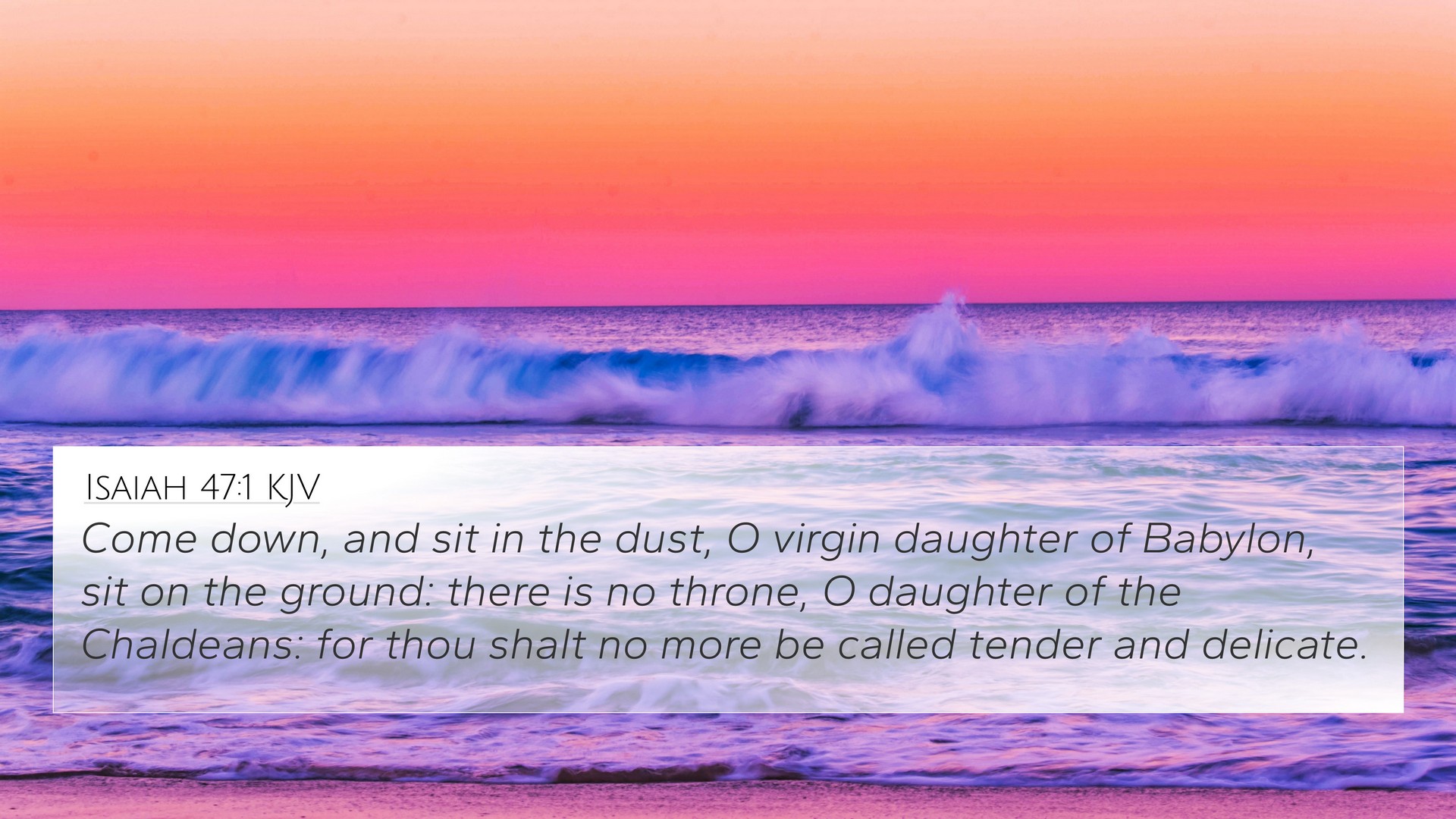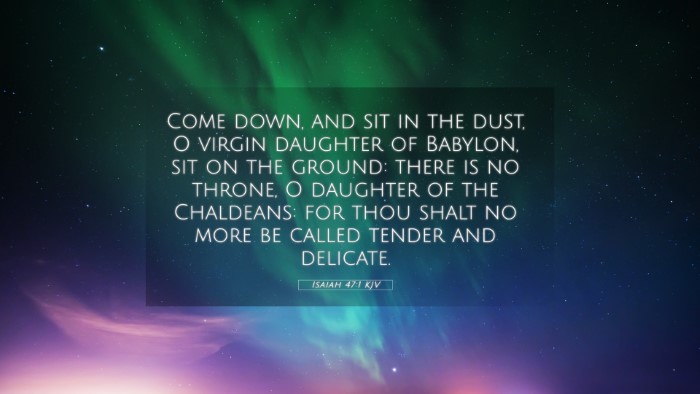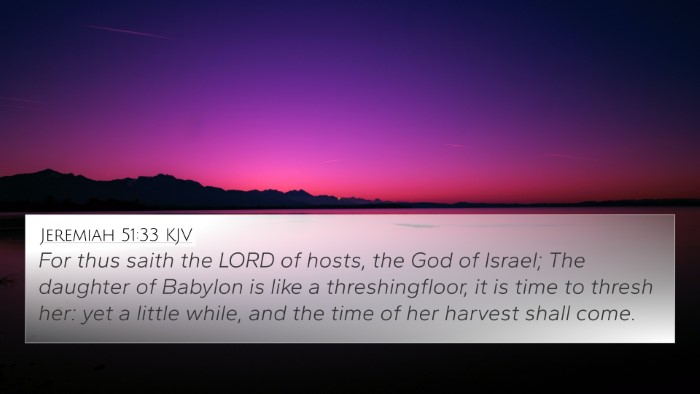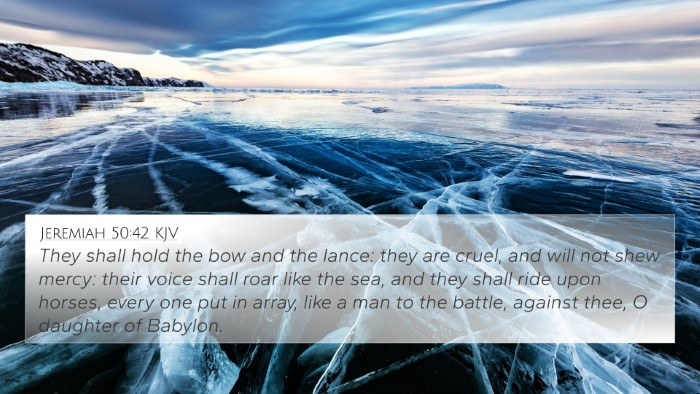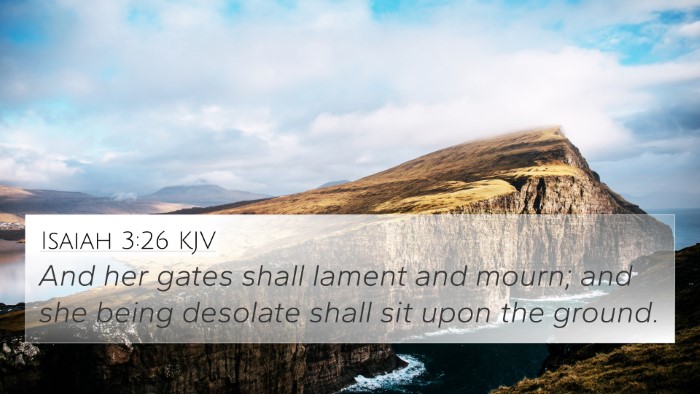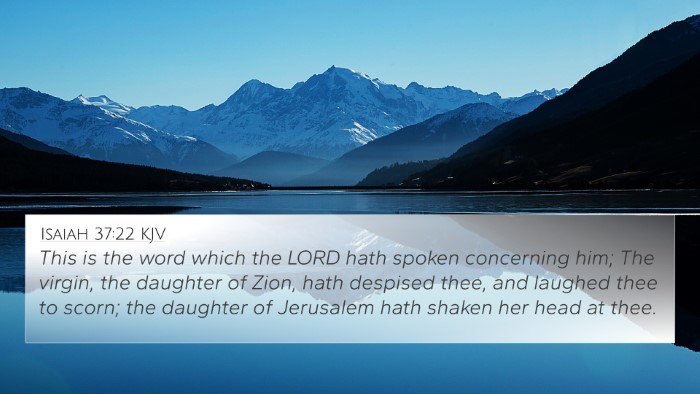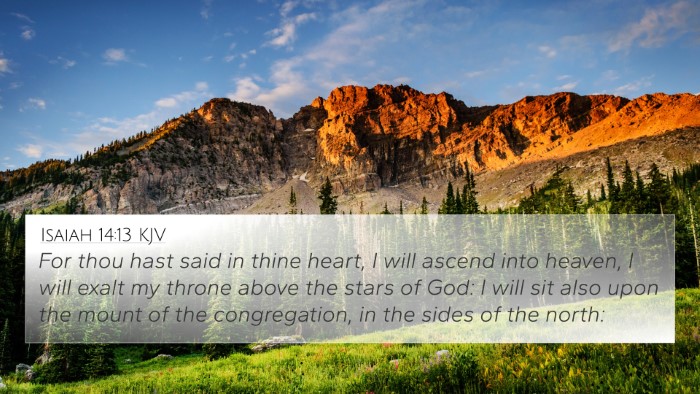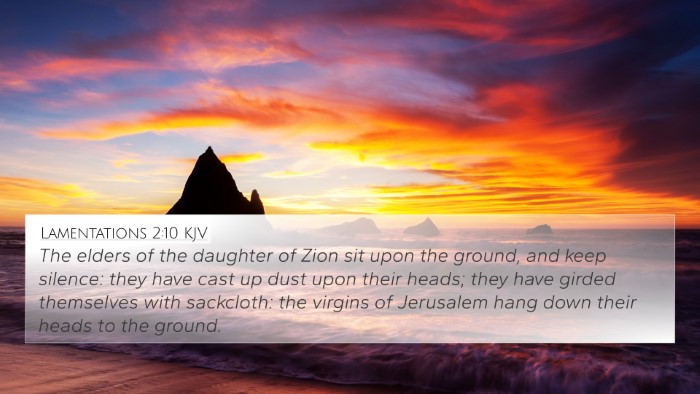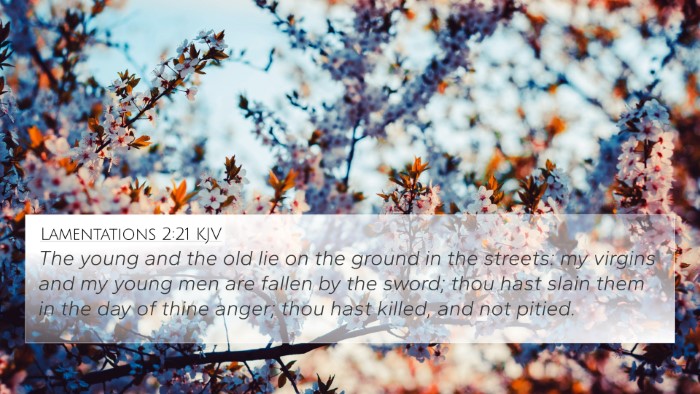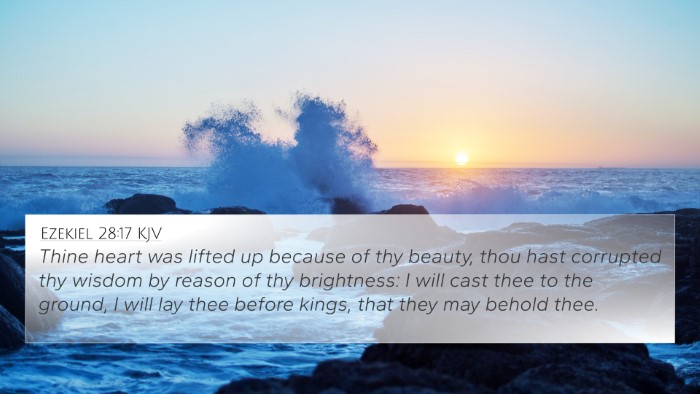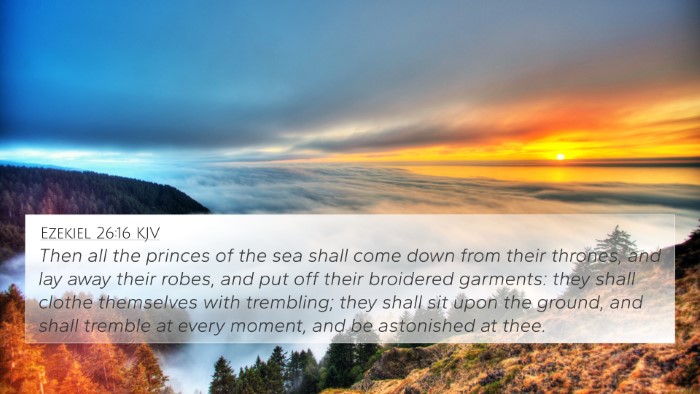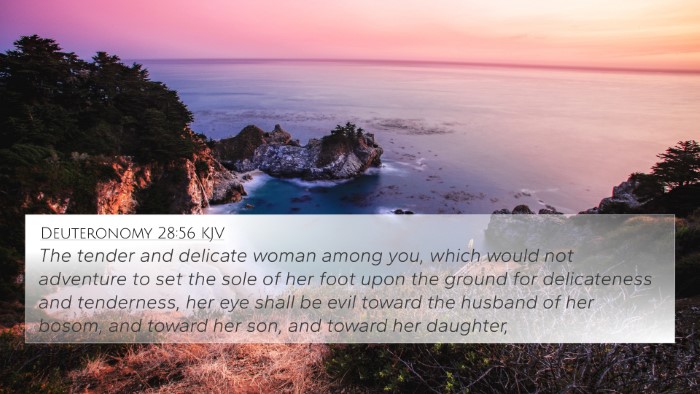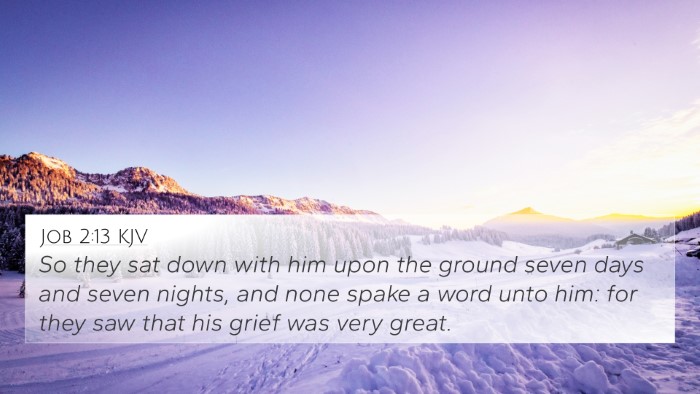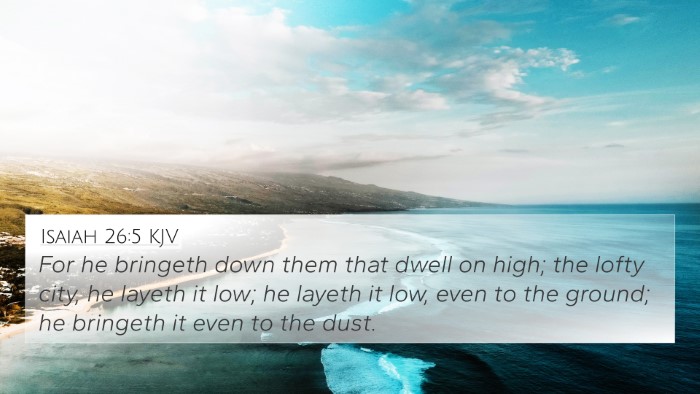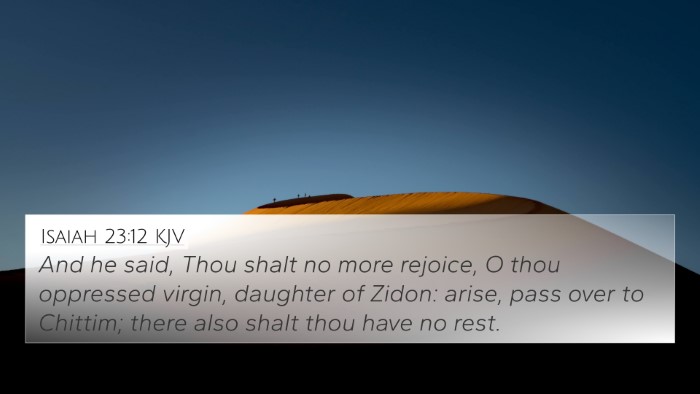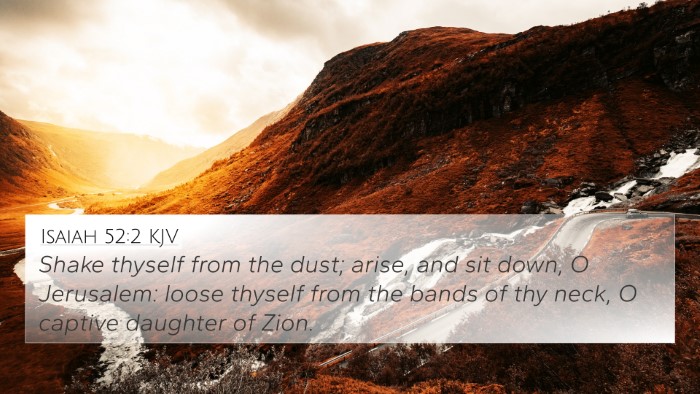Understanding Isaiah 47:1
Isaiah 47:1 proclaims the fall of Babylon, symbolized by the figurative imagery of a virgin daughter being brought down from her lofty throne. This verse serves as a prophetic reminder of God's judgment against pride and arrogance, emphasizing the inevitable downfall of those who oppose His will.
Verse Analysis
The context of Isaiah 47 reveals a time when Babylon, a symbol of human pride and oppression, looked invincible. The prophet Isaiah stands as a voice of divine warning, relaying God's message of impending judgment and humiliation for the great city that had exalted itself above nations.
Key Themes
- Judgment against Arrogance: The fall of Babylon illustrates God's response to human arrogance and pride.
- God's Sovereignty: This verse emphasizes that no earthly power can stand against God's will.
- Restoration and Redemption: While God pronounces judgment, it is also an opportunity for His people to seek restoration.
Public Domain Commentary Insights
Numerous public domain commentators provide valuable insights into this verse. Matthew Henry discusses the "virgin daughter" metaphor, depicting Babylon's former glory that will be left desolate. He highlights the contrast between her status and her impending degradation, underlining a theme prevalent across the Scriptures—the fall of those who set themselves against God.
Albert Barnes explains how Isaiah’s prophecy serves as a notice of the demise of Babylon's pride. He stresses the irony of Babylon's downfall, noting that the very attributes that led to her exaltation will now be the cause of her ruin. He encourages readers to reflect on the fate of nations that forget God.
Adam Clarke delves into the meaning of the "daughter of Babylon," interpreting her disgrace as a direct result of her sinful practices and idolatry. He emphasizes that this pronouncement is not just a historical event but a cautionary tale for all individuals who elevate themselves above divine authority.
Cross-References to Isaiah 47:1
Isaiah 47:1 connects with various other biblical texts, highlighting the overarching themes of pride, judgment, and restoration throughout Scripture. Here are 10 relevant cross-references:
- Revelation 18:2: The fall of Babylon is reiterated in the context of her role as a symbol of corruption and sin.
- Jeremiah 50:31: Prophecy concerning Babylon's pride and the coming judgment from God.
- Isaiah 14:22: The declaration against Babylon, establishing her downcast fate.
- Obadiah 1:3-4: A warning that the pride of Edom, like Babylon, will lead to her downfall.
- Proverbs 16:18: “Pride goes before destruction,” underscoring the theme of arrogance leading to downfall.
- James 4:6: “God opposes the proud, but gives grace to the humble,” reinforcing God's stance against pride.
- Isaiah 13:19: Prophecy about Babylon as a demonstration of God’s judgment on prideful nations.
- Micah 2:10: A call for God’s people to depart from wrongdoing and the warning against complacency.
- Psalm 37:10: The fate of the wicked — they will be no more — aligns with the themes in Isaiah.
- Matthew 23:12: Jesus emphasizes humility, stating that those who exalt themselves will be humbled, echoing the consequences seen in Babylon's story.
Connections Through Biblical Cross-Referencing
Understanding Isaiah 47:1 within the greater biblical narrative involves examining its connections with other scripture. Cross-referencing biblical texts like those cited above not only enhances our understanding of the prophetic literature but also encourages a deeper exploration of how themes of judgment, humility, and divine sovereignty recur throughout the Scriptures.
To comprehensively study Isaiah and its connections to other verses, various tools for Bible cross-referencing can be utilized. A well-organized Bible concordance, or a Bible cross-reference guide, can help individuals uncover thematic Bible verse connections and facilitate deeper theological understanding.
Conclusion
In conclusion, Isaiah 47:1 serves as a critical reminder of God's sovereignty and the certainty of judgment against prideful nations. By exploring this verse alongside its cross-references and engaging with public domain commentaries, readers can enhance their comprehension of the profound lessons embedded within these texts. The interconnectedness of the Bible invites a deeper study of its themes and encourages humble submission to God's will.
As you delve into the text and seek to understand the intricate relationships between biblical verses, consider utilizing methods of cross-referencing. This biblical study approach will enrich your understanding of the scriptures and illuminate the timeless truths that continue to resonate throughout history.
